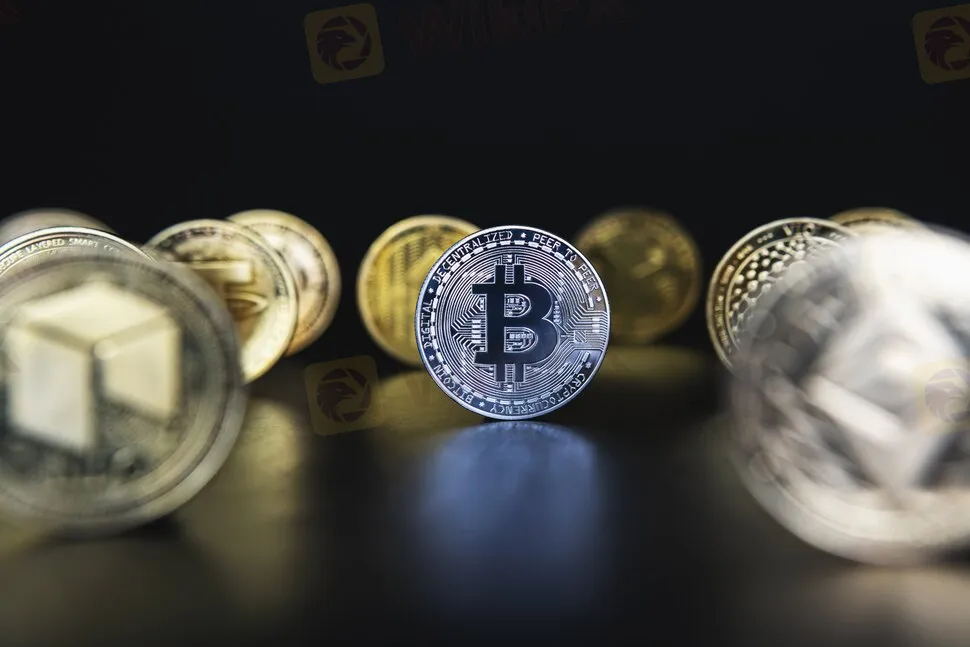简体中文
繁體中文
English
Pусский
日本語
ภาษาไทย
Tiếng Việt
Bahasa Indonesia
Español
हिन्दी
Filippiiniläinen
Français
Deutsch
Português
Türkçe
한국어
العربية
Bitcoin drops below $30K amid broader market sell-off, Hits 10-month low
Abstract:The last time the largest cryptocurrency by market cap traded under $30,000 was in July 2021.

Bitcoin (BTC) fell below $30,000 on Tuesday as both traditional financial markets and cryptocurrencies suffered from a sell-off caused by the U.S. Federal Reserve's aggressive monetary tightening as well as recession fears.
The latest decline left bitcoin at a 10-month low and its lowest price this year.
The last time the largest cryptocurrency by market cap fell below the $30,000 threshold was on July 20, 2021, when it hit $29,301 before rebounding.
BTC down: What experts are saying
Edward Moya, senior market analyst at Oanda, said:
“The recent crypto slide is strictly based on the tech share-led sell-off and not fundamentals for the cryptoverse. Bearish momentum could take bitcoin towards the $28,500 level, but that might start to be where some long-term bets come into play. The long-term fundamentals remain in place for bitcoin, but a return to record highs will take a long time. Bitcoin will start to stabilize when the bloodbath on Wall Street ends and right now many investors are still in panic-selling mode.”
Steven McClurg, Valkyrie chief investment officer and co-founder, told CoinDesk TV on Monday:
“If the Fed continues to raise rates through June and July, we'll probably continue to get markets going down all the way through the summer. My expectation though is that due to midterm elections coming up in November, we'll probably see the Fed pausing or even lowering rates starting at the September meeting, so that will be the catalyst. We could see the market going back up at that point.”
Jeff Dorman, chief investment officer at Arca, wrote in a report:
“This is just a buyer strike of ultimate proportions, and it remains to be seen what (if anything) will bring buyers back.”
This month the Federal Reserve raised its benchmark interest rate by 50 basis points (0.5 percentage points) and will likely do so again at its next meeting in June.
Bitcoin's price drop is part of an across-the-board market sell-off.
All three major stock market indexes are down, with the S&P 500 currently trading down 3.2% at 3991. The tech-heavy Nasdaq and the Dow Jones Industrial Average were also trading lower, at 11,623, or -4.5% and 32,245, -2%.
As part of this market sell-off, the correlation coefficient between bitcoin and the Nasdaq hit an all-time high of 0.8, according to data firm Kaiko. This is considered to be a strong positive correlation.

Disclaimer:
The views in this article only represent the author's personal views, and do not constitute investment advice on this platform. This platform does not guarantee the accuracy, completeness and timeliness of the information in the article, and will not be liable for any loss caused by the use of or reliance on the information in the article.
Read more

Doo Financial Expands Regulatory Reach with Offshore Licenses in BVI and Cayman Islands
According to the report, Doo Group, a prominent Singapore-based online brokerage firm, has strengthened its global presence by securing new offshore licenses for its brokerage brand, Doo Financial. The company recently announced that entities under the Doo Financial umbrella have been granted licenses by two key offshore regulatory bodies: the British Virgin Islands Financial Services Commission (BVI FSC) and the Cayman Islands Monetary Authority (CIMA).

Why is there so much exposure against PrimeX Capital?
In recent months, PrimeX Capital, a Forex and CFD broker established in 2022, has become a subject of concern in the trading community. However, despite these enticing features, the broker's reputation has been severely tarnished by multiple complaints and a troubling lack of regulatory oversight.

The Hidden Checklist: Five Unconventional Steps to Vet Your Broker
Forex broker scams continue to evolve, employing new tactics to appear credible and mislead unsuspecting traders. Identifying these fraudulent schemes requires vigilance and strategies beyond the usual advice. Here are five effective methods to help traders assess the legitimacy of a forex broker and avoid potential pitfalls.

Doo Financial Obtains Licenses in BVI and Cayman Islands
Doo Financial, a subsidiary of Singapore-based Doo Group, has expanded its regulatory footprint by securing new offshore licenses from the British Virgin Islands Financial Services Commission (BVI FSC) and the Cayman Islands Monetary Authority (CIMA).
WikiFX Broker
Latest News
ASIC Sues Binance Australia Derivatives for Misclassifying Retail Clients
AIMS Broker Review
The Hidden Checklist: Five Unconventional Steps to Vet Your Broker
WikiFX Review: Is FxPro Reliable?
Malaysian-Thai Fraud Syndicate Dismantled, Millions in Losses Reported
Trading frauds topped the list of scams in India- Report Reveals
YAMARKETS' Jingle Bells Christmas Offer!
Doo Financial Expands Regulatory Reach with Offshore Licenses in BVI and Cayman Islands
Why is there so much exposure against PrimeX Capital?
Russia to Fully Ban Crypto Mining in 10 Regions Starting January 1, 2025
Currency Calculator


